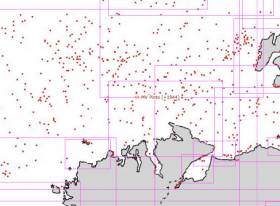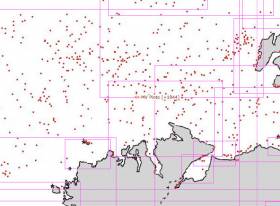Displaying items by tag: Pinto
Inquests In Donegal Deal With Separate Diving Tragedies
A Canadian national who died on a diving expedition off Donegal in 2017 was one of two separate diving tragedies in the region within weeks of each other, as RTÉ News reports.
As reported at the time on Afloat.ie, the body of a man in his 60s was recovered on 14 August 2017, two days after he went missing while on a dive to the wreck of the Pinto north of Fanad.
An inquest into the death of Randy McNalley (63) took place yesterday (Wednesday 13 February) at the Coroner’s Court in Letterkenny, which heard that the experienced diver and triathlete died of lack of oxygen — but this was likely the result of a health condition rather than a failure of his equipment.
A separate inquest on the same day dealt with the circumstances surrounding the death of British diver John Allwright (57), who was sucked into a side cave during a ‘swim-through’ of a cavern at Sheephaven Bay on 28 July 2017.
RTÉ News has more on the story HERE.
Body Recovered In Search For Diver Off Donegal
#Diving - The body of a diver missing off the Donegal coast since Saturday was recovered yesterday (Monday 14 August), according to Canada’s Globe and Mail.
The deceased, a Canadian citizen believed to be in his 60s and who has not yet been named, was found near the wreck of the Pinto, a convoy rescue ship sunk by a German U-boat on 8 September 1944.
As previously reported on Afloat.ie, the man had been diving with a group north of Fanad when he disappeared on Saturday afternoon (12 August).
Ireland is a popular destination for wreck divers, with a number of shipwrecks of historical significance dotted around the coast.






























































